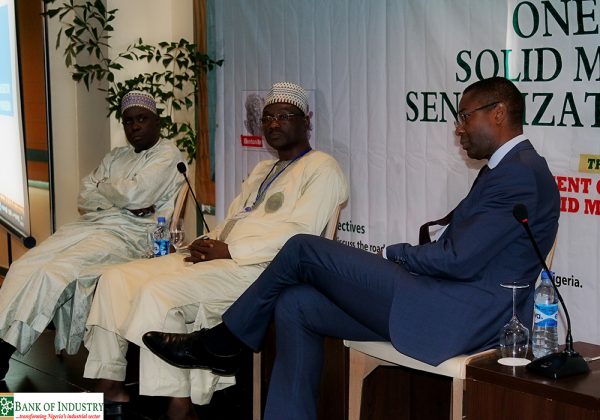The bank of Industry disclosed that its total loan portfolio to the solid minerals sector of the Nigerian economy is now N24.6 billion. The dwindling oil revenue in recent times has made solid minerals development very imperative as a means of revenue diversification. The managing director of the bank, Mr Rasheed Olaoluwa, who made this disclosure at a forum organised by the bank for the key stakeholders in the sector, said that the essence of the event was to highlight the opportunities in the sector and sensitise both local and international investors, adding that the Nigerian economy, until now, had relied heavily on petroleum as the major source of revenue and foreign exchange earnings since the early 1970s.
Olaoluwa said that the country is endowed with abundant agricultural and solid mineral resources that could be leveraged to propel the country’s economic development. “It must be highlighted that the mining sector is a goldmine for many African countries. For instance, Zambia derives more than 70 per cent of its foreign exchange earnings from copper, the same can be said about Botswana and diamond, Guinea and iron ore, Ghana and gold, Namibia and uranium, etc. The National Industrial Revolution Plan (NIRP) which was launched in February 2014 was designed to leverage on Nigeria’s agricultural and mineral resource endowments to rapidly build up Nigeria’s industrial capacity and to improve the competitiveness of our locally produced items. I am happy to announce that the Bank of Industry has fully aligned its operations with the noble objectives of the NIRP with the establishment of dedicated Business Groups for Agro Processing and Solid Minerals respectively. Our total loans to the solid minerals sector stand at N24.6 billion,” he said.
According to him, if the country could effectively harness its 44 solid minerals already identified, the economy would change through value addition, employment generation, improved tax revenue and general economic growth. “One segment of the solid mineral sector in which Nigeria has done very well is in the conversion of limestone to cement where, with producers such as Dangote Cement, BUA Cement, Lafarge Cement, etc, Nigeria is now by far the leading producer of cement in Africa and a Top 10 producer globally. How can we replicate this success stories in other solid minerals such as iron ore? Most African minerals are exported as raw materials to the developed countries. Can Nigeria industrialise its solid mineral sector through mineral beneficiation, mineral processing and value-added manufacturing? How do we develop the required resources and technical skills?” he questioned.

